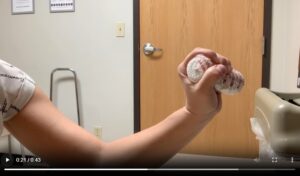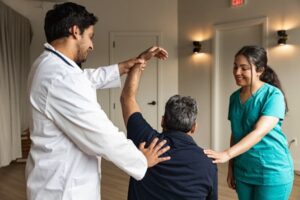Buffalo, NY Team Wins Award for Research on Shoulder Replacement Surgery
Shoulder replacement is an excellent operation for many people with shoulder arthritis. Our Buffalo, NY based team is actively researching ways to make it better. Last week I was honored to accept the Charles Neer award from the American Shoulder and Elbow Society on behalf of our team at University at Buffalo/ UBMD Orthopedics and … Read more



